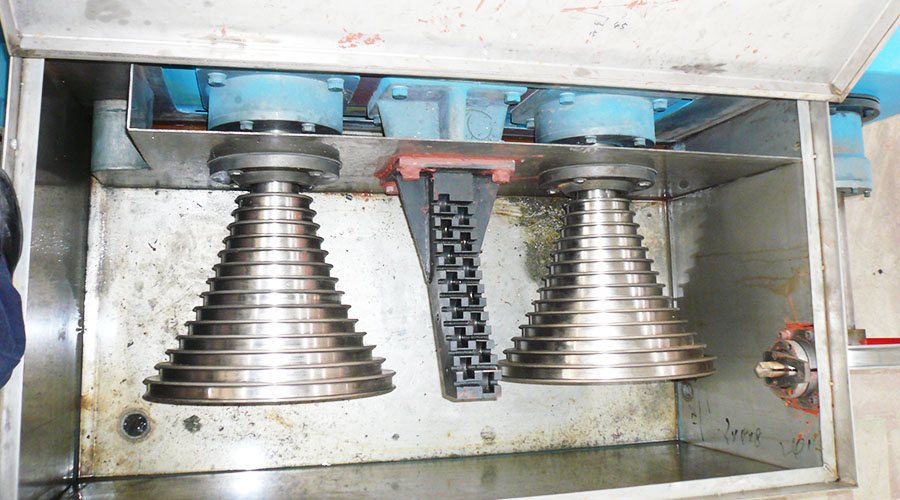The Reasons for the Different Drawing Effects of Wire Drawing Machines and the Advantages of Roller Dies
The metal blocks pulled out by the wire drawing machines are different. It may be because the cooling water temperature is too high, exceeding 40 degrees. Then the sealed chamber cannot have a cooling effect on the metal wire, which will cause the single wire of the wire drawing machine to After annealing, the temperature is still very high, and the oxygen in the air will oxidize at high temperatures.
The coolant soap content in the sealed chamber is not high, which will increase the friction between the metal wire and the guide wheel, causing the temperature of the metal wire to further increase, and oxidation will occur. If the cooling water pressure in the sealed chamber is not up to standard, then the metal wires cannot be cooled well.
To solve these oxidations, we can check the cooling circulating water to see if it is rotating normally and what the cooling effect is. In the sealed chamber, we need to add something that can enhance the concentration of the saponification liquid, so as to ensure that the metal If the wire can operate normally, we should check the circulating water frequently.
Wire drawing by wire drawing machines is a metal processing technology. In metal pressure processing, the metal is forced through the mold under the action of external force, and the metal cross-sectional area is compressed and the required cross-sectional area shape and size are obtained. Technical processing method.
The wire drawing die is a traditional die used to pass the metal wire from thick to thin.
The roller die is a new generation die that replaces the wire drawing die. The roller die is a drawing die composed of 2 to 4 driven rollers. The commonly used structure is a cross die, which consists of a pair of vertical rollers 2 and 4 and a pair of horizontal rollers 3. and 5. Another structure is composed of a pair of horizontal or vertical rollers.
Comparing the service life of the drawing die and the roller dies, the service life is shortened by about 60-80 times under the same circumstances. Since the drawing die does not need to be replaced frequently, downtime is greatly reduced and production efficiency is indirectly improved. The energy required to produce deformation by roller die rolling is reduced, and the energy consumption for the same output is reduced.
Since roller die rolling gives the steel wire less tension than drawing, wire breakage is reduced, the frequency comparison is about 7-10 times lower on average, and the wiring time is reduced. The frequency of replacement drawings is greatly reduced.
After one replacement period, the roller die is 60-80 times longer than the drawing die. This allows operators to take care of more equipment at the same time, reducing the number of workers.





